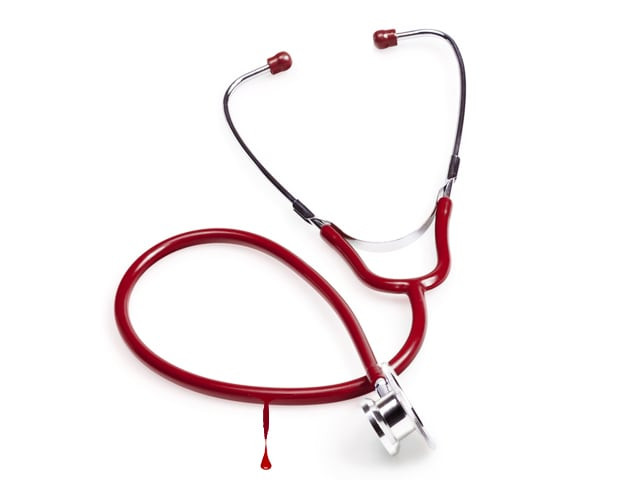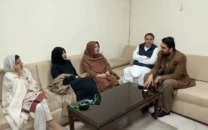Fake it for a cause: Simulation the way forward in medical education
‘Use of simulated patients for assessment in medical education increasing’

Using individuals trained to act as patients, along with a simulation technology, is a step forward in medical education, health experts said at an international conference that kicked off at the University of Health Sciences (UHS) on Friday.
The thee-day conference, titled Simulations, Simulated and Standardised Patients in Health Professions’ Education, has been being organised in collaboration with the Higher Education Commission, the Pakistan Medical and Dental Council, the Pakistan Medical Research Council and the Pakistan Sciences Foundation.
Kay Mohanna from the Keele University School of Medicine, UK, said the use of simulated and standardised patients (SPs) for assessment in medical education was increasing.

“In the UK, since 2008, the Royal College of General Practitioners has used role players in its high stakes, end point licensing exam for the Clinical Skills Assessment of the MRCGP exam... without passing that exam, general practitioners can no longer practice in the UK,” she said.
David Taylor from the University of Liverpool, UK, said that simulation could maximum benefit students and gave staff and students appropriate levels of confidence in their ability to perform clinical skills.
Vikram Jha from the Liverpool Women’s Hospital, UK, focussed on the pedagogic frameworks for patients’ involvement in medical education, the strategies that might be adopted to enhance engagement and the challenges of such involvement.
Prof Dr Ijaz Ahsan, chief guest, said the standards of healthcare and medical education had considerably improved in the country over the years.
He said that despite rampant corruption in the country, “everything cannot be wrong in the land of Faiz and Jalib”.
UHS Vice Chancellor Prof Muhammad Aslam said that in order to achieve the objective of practitioner’s competency akin to global standards and to satisfy the ethical need of patient rights, it was vital to make simulation-based training an integral part of medical education in Pakistan.
UHS Pro-VC Prof Junaid Sarfraz Khan said the conference had brought together various schools of thought in support of the wide use of simulation technology and those who argued that it should be used in moderation.
Higher Education Commission Executive Director Mansoor Akbar Kundi stressed the need for raising the standards of education. He said the HEC would support all academic activities that were meant to bring paradigm changes in healthcare delivery system.
Liaqat University of Medical and Health Sciences, Jamshoro, Vice Chancellor Prof Noshad A Shaikh, Prof Gominda Pannamperuma, Tariq Mufti and Prof Musarratul Hussnain also spoke.
More than 700 health professionals, educationists, policymakers, medical students and allied health experts are attending the conference.
The event consists of workshops, keynote speeches, paper and poster presentations, short-training courses, hands-on training sessions, a book fair and an exhibition.
Published in The Express Tribune, November 22nd, 2014.



















COMMENTS
Comments are moderated and generally will be posted if they are on-topic and not abusive.
For more information, please see our Comments FAQ